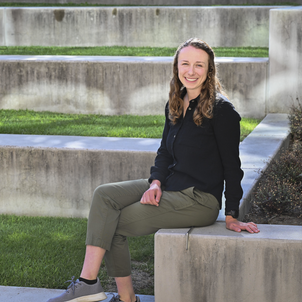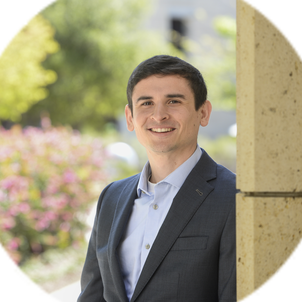I grew up in France and took classes to prepare to study aerospace engineering as a teenager. My interest in space didn’t start until college when a classmate and I worked on a couple of group projects together – I handled the flight side and she handled the space side. I fell in love with the field after watching my first chemical rocket motor fire for a school project. From there I started learning more about rockets and rocket propulsion systems.
My research focuses on hybrid rocket motors and how we can use them on small satellites. A typical rocket propulsion system uses a fuel and an oxidizer in either a liquid or solid form, while a hybrid motor uses a solid fuel and a liquid (or gaseous) oxidizer that are each stored separately. The benefits of a hybrid system are fewer storage issues, simpler operation and better safety, but we’re still working on modeling its performance, which is a difficult task. There’s always more I could do and want to do to contribute to this research – experimentalists always want more data – but I try to remember that my work is contributing to something larger. There will be great people after me to continue the research, and I can’t wait to see this type of system fly in space someday.
Studying here has really changed my perspective on engineering and the importance of having multiple voices in the field. As an undergrad, I didn’t really question the fact that women were a minority in my classes and on projects. I just got used to it. But coming to Stanford, I began to realize how important it is to change that dynamic because I’ve seen the value of having female groups, mentors and open conversations on the subject. I’ve become involved in organizations like Women in Aeronautics and Astronautics, which has made me think more about gender stereotypes, social norms and how we can all support each other in reaching our maximum potential.
My advice for future engineers is to study something you’re passionate about. It’s easy to be influenced by popularity or prestige and to go into a program for the wrong reasons. The truth is, you’re going to spend a lot of time thinking, fixing, debugging, hating and loving your research, so it’s important to decide what you really want to be doing with your time and how to make the best of it. Just be honest with yourself and put effort into figuring out what’s really important to you.
Related spotlights

Christine Baker

Thomas Colburn

